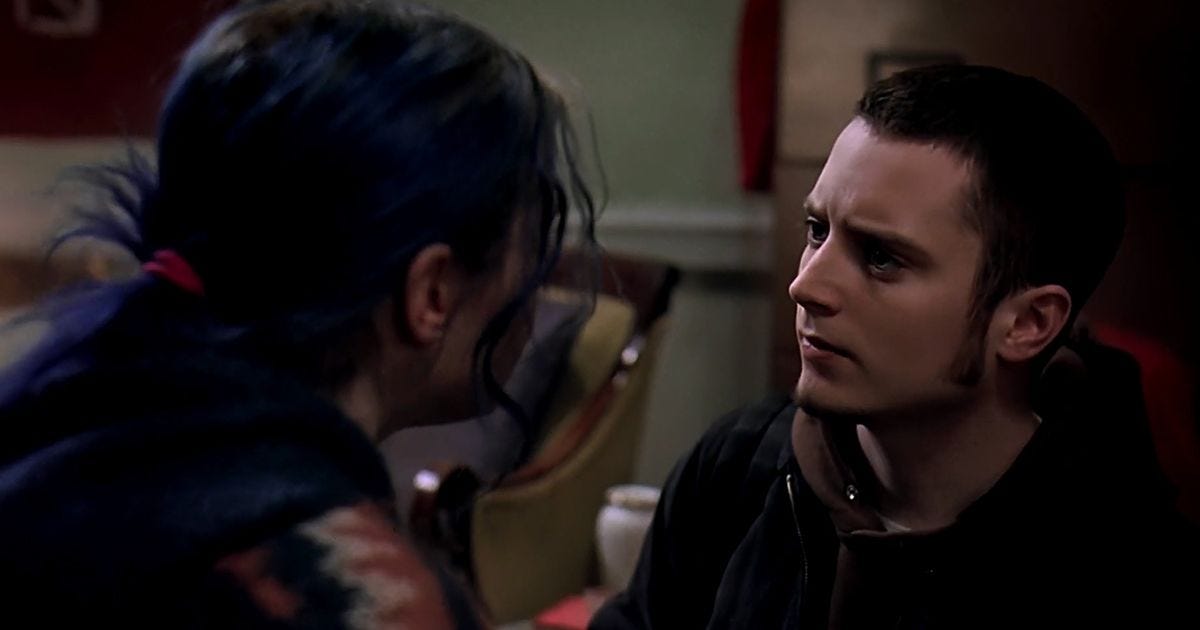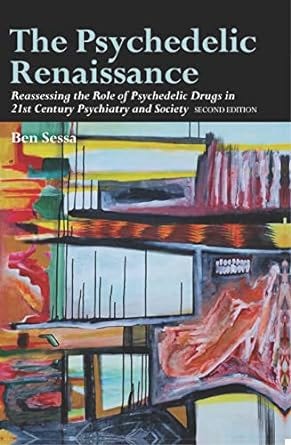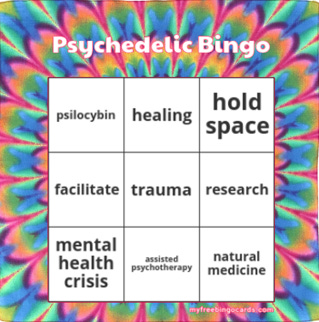Great weekend at SXSW a couple weeks ago. Made new friends. Caught up with old ones. Saw a few in bathing suits in a hot tub. And now, I’m reflecting.
One thing stands out.
Admittedly, my mind is in a particular place. I’m currently penning an article on medical malpractice for the upcoming Summer 2024 Harvard POPLAR symposium on psychedelics. Naturally, but unfortunately, this endeavor makes it necessary to pay some attention to a per se act of therapy malpractice.
Fucking patients.
In case you were wondering, here is the general rule:
Therapist-patient sexual contact is unethical, whether it is the patient or the therapist who attempts to sexualize the therapeutic relationship. Therapist-patient sexual contact is non consensual; patients cannot provide a morally valid consent to sexual relations with their therapist because the key elements of a morally valid consent--intentionality, substantial understanding, substantial voluntariness and autonomous authorization--cannot be met. As well, therapist-patient sexual contact harms patients, patients' families, and the profession. The most significant harm caused is experienced by the patients, the majority of whom are women.
Or, put more simply:
Don’t fuck your patients.
No exceptions.1
Incredibly, patient fucking isn’t some new or unique phenomenon in PAT. According to one article, 7 to 10 percent of male therapists and 1 to 3 percent of female therapists fucked one or more patients (PTSI - Patient-Therapist Sexual Involvement).
That invites the following question: if patient fucking exists outside of PAT, why should the psychedelic space care more? I can think of at least two reasons.
First, the obvious. Psychedelic assisted therapies inherently involves administering drugs that dissolve boundaries, compromise decision making, and lower inhibitions. As the general rule notes, there can’t be informed consent in a therapist-patient relationship. That is especially true with drugs added to the mix.

Second, these medicines are, by design, indicated for use in vulnerable persons, many with challenging symptomologies rooted in traumatic experiences, including sexual traumas. Trauma reenactment is a real thing: unresolved trauma from earlier familial or romantic relationships that leads individuals to unconsciously seek and recreate scenarios similar to past traumatic experiences, ruining newer relationships and entrenching the pattern. Even worse, it can be passed to kids and become intergenerational trauma. Hence, why some say psychedelic medicine and healing trauma—to interrupt these unhealthy old patterns.
Given trauma reenactment, in the context of treating trauma, patient fucking is particularly problematic. Not surprisingly, the article identifies PTSD as a factor in patient vulnerability to PTSI because of psychic conditioning.
[P]reviously abused patients’ apparent gravitation to current abusive situations as reflecting a conditioned need for high-intensity, endorphine-releasing experiences because only the later seem to them to have emotional meaning and validity
And so, instead of healing trauma, PTSI recreates or reenacts broken dynamics from the earlier trauma.
Take that in, and you’ll appreciate why I’m writing this missive with a bit of indignation.
For many, the mantra of psychedelic medicine is often “healing trauma” and its associated maladaptive behavioral patterns. The promise of psychedelics, as medicine, is the notion that you can “change your mind,” which entails, among other things, inducing neuroplasticity and memory reconsolidation. Patient fucking, however, not only doesn’t treat but exploits maladaptive psychic conditioning and trauma.
The most recent high-profile episode relates to Ben Sessa—the man who coined the phrase “psychedelic renaissance.”
Once a luminary in the psychedelic space, Sessa had affair with his patient. The following is admitted:
Sessa’s patient came to him to treat psychiatric conditions that include self-harm and deliberate overdoses.
Following her discharge, Sessa began a sexual relationship with her.
Indeed, Sessa discharged her from his care in order to pursue a sexual relationship with the woman.
Read that again. Sessa severed a patient-client relationship with an individual he knew to have self-harm issues to pursue a relationship with her. The punishment? A 12-month license suspension.
That wasn’t enough. Given Sessa’s stature and the magnitude of his deplorable conduct—the field should have said more—at SXSW and everywhere else. In medieval times, this type of conduct was squarely met with tarring-and-feathering, the gluing of feathers to the body, to humiliate a community member as a warning to the victim and other community members not to commit a transgression again.
Community shaming is a cost-effective form of regulation—far more cost-effective than the Oregon rigmarole.
To be crystal clear, while I know many in this space, I don’t know Sessa. I don’t believe him to be an evil person. The decision explains that Sessa is going through his own pain and grief. He’s human. But however one feels about Sessa as a human, a robust field with integrity must hate his sin and condemn it in the strongest possible terms. You don’t need to know him to know that his misconduct is deplorable.
And that’s what angers me: the hypocrisy. My last essay on signing a petition to release the innocent women and children taken hostage by Hamas noted that trauma is a fiat currency in psychedelics. Indeed, sitting through psychedelics panels can feel like having front row tickets to the trauma Olympics.
Yet when real, actual traumas arise, the same people that advance “net zero trauma” and “healing for all” narratives can’t seem to spare testicular segments to call out heinous trauma misconduct in strong, unambiguous terms. Some, who I know and otherwise like, remain silent. Others try to persuade others not to speak out. Others know of this violative behavior and allow it to continue. More generally, taking positions in this space often seems frowned upon.
Why this is so escapes me. We speak of a “blue wall” of silence in law enforcement where officers do not report on an officer’s errors, misconducts, or crimes, especially with police brutality. Psychedelics, it appears, has similar problem—the tie-dyed barrier of tranquility. Don’t rock the boat, baby. Maybe too much MDMA or psilocybin smooths the brain. Whatever the reason, it’s unfortunate. As I note, community shaming can be a very effective, cost-efficient deterrent of bad behavior. But for it to be effective, disapprobation must come from within.
Instead, the loudest and sharpest voices calling out this behavior are usually not central cast members but those with one foot out of the space, like Jules Evans.2 Not surprising. As I noted in September 2022, most of the people I hold in the highest regard in psychedelics are those not singularly focused on psychedelics or were accomplished in another field before turning to psychedelics or today remain multidisciplinary. And It makes sense. If you are dependent on psychedelics or psychedelics are your everything, you aren’t going to trash it, even when the trash must be taken out.
This is why I proclaimed “I am not a psychedelic lawyer” and I probably never will be. And, it is why I don’t believe in “psychedelics as a value,” as I explained in January 2023:
When promoting psychedelics becomes a core value, an end in itself. To me, neither psychedelics nor drug policy are core values. Core values are things like truth, liberty, freedom, democracy, honesty, integrity, safety, etc. “Psychedelics as a value,” however, is the notion that psychedelics and promoting psychedelics ought to be in that list and the belief that promoting psychedelics is worth the cost of compromising on other core values.
That Sessagate is not an isolated stain should not be a surprise either. Other accounts abound. Meghan Buisson and Richard Yensen. Will Hall and Bourzat/Grossbard. Jeffrey Glattstein’s “energy healing sessions.” I’m hearing grumblings of others, and am personally aware of less heralded psychedelic stains dating back more than a decade.
My instinctual inclination following Sessagate was a call to arms. But, cooler heads have talked me into a different close, just as Kayla Greenstein starts her essay.
If you have experienced harm from psychedelics, consider support options from https://shinesupport.org/
And one more thing…
I’ll put some money where my mouth is on this one. Last year, I gave to Porta Sophia and made a cool hat.
This year, I gave to Shine Collective—and potentially a dollar-for-dollar match second donation in the future. And, if you don’t believe in an old tar-and-feather but still want to support trauma victims, you can make a donation too.
[EDIT] Coined, originally, in substantially similar form by Dr. Julie Holland
I’d definitely read Kayla Greenstein’s account.









Thank you so much for your support!
“…most of the people I hold in the highest regard in psychedelics are those not singularly focused on psychedelics or were accomplished in another field before turning to psychedelics or today remain multidisciplinary. And It makes sense. If you are dependent on psychedelics or psychedelics are your everything, you aren’t going to trash it, even when the trash must be taken out.”
Brilliant article, Matt! Over the years, I’ve come to be extra skeptical of those whose livelihoods are deeply intertwined with serving or promoting psychedelics. Whether they be the ceremony minstrel or the shaman pouring the cup, there is seldom seen an ability to self-reflect or atone, let lone grapple with, the intractable problems posed by manipulators and abusers in the psychedelic community. The wounded sometimes run straight into the lions’ den. I think the most reasonable people in the psychedelic space always keep one foot outside the door.